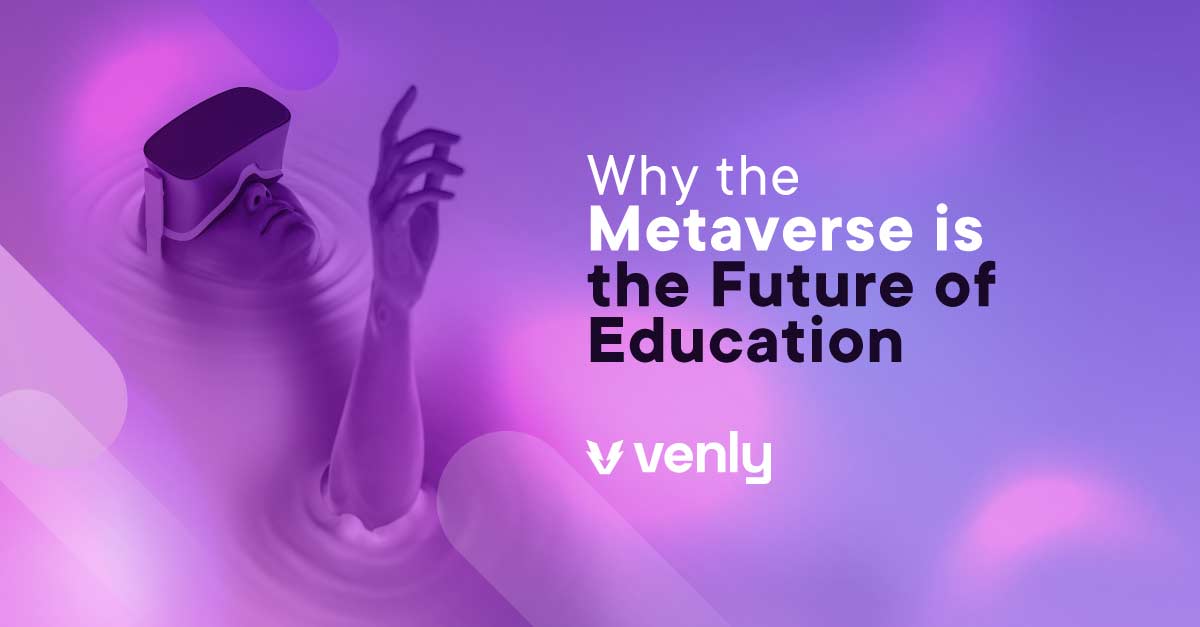Why the Metaverse is the Future of Education

Imagine that you want to be a fashion designer but have no idea where to start. Luckily, YouTube can recommend millions of videos about this topic, and after spending a few hours on the platform, you can actually learn the basics.
There is a tiny problem, though. When it comes to practice, you might be hesitant to get a pair of scissors and start cutting the pricey fabric you’ve bought. And this is where the metaverse enters the picture…
The metaverse possesses the power to blur the lines between the physical and virtual worlds with the help of Virtual Reality (VR) and Augmented Reality (AR) technologies, which will affect the way we learn. Coming back to our example, if you take a fashion designing class in the metaverse, you can sew a dress without using physical materials. Then, this virtual experience can give you more confidence while doing the real thing.
Let’s explore the two main reasons why the metaverse, with the support of VR and AR technologies, is the future of education and learning.
The metaverse is taking learning beyond classroom walls
When watching Doctor Who, one cannot help but imagine being in the Tardis and traveling in time and space. Do you remember the time when the Doctor and Donna witness the Fires of Pompeii, or they travel to another galaxy together? The metaverse can allow you to do the same without having to own a Tardis.
Take high school students as an example. In the metaverse, they can experience the Neolithic Revolution by going “back in time”. The learners can explore how people lived there, what they wore, and what tools they used in their daily lives. Added to that, students can conduct scientific experiments that would be risky in real life.
The improvement of digital twin technology also helps medical students improve their skills. For instance, students have limited resources for the practice of surgeries, and procedures on bodies are costly for hospitals. However, leveraging VR can reduce the cost and give students more time for surgical training.
👀 Learn more: What Everyone Must Know About Digital Twins.
Virtual reality makes the learning process productive and efficient
Let us borrow the words of Immanuel Kant, “Experience without theory is blind, but theory without experience is mere intellectual play.” The good news is that the metaverse can transform the way educational content is delivered and become a place where you can do both.
The learners can retain knowledge better and put theory into practice in the metaverse, especially when they are equipped with VR and AR headsets or glasses. As a result, VR learners are four times more focused than their e-learning peers, and they are 275% more confident in applying what they’ve learned, according to a PwC study.
When we learn something, our neurons create a path that can reach that piece of information. If we do not revisit it, the path will disappear, so we will not be able to find the memory. VR in education makes it easier for students to remember their lessons since they are able to form their own memories, meaning creating more than one path to that data and making the experience more memorable.
To conclude, the metaverse is an ever-growing industry: From real estate and healthcare to games and entertainment, we have seen so many different applications of it so far. And education will be a crucial part of the digital world since it will help attract more users thanks to its meaningful utilities.
🎧 Listen to Venly Expert Talks if you like audio content.



.png)










